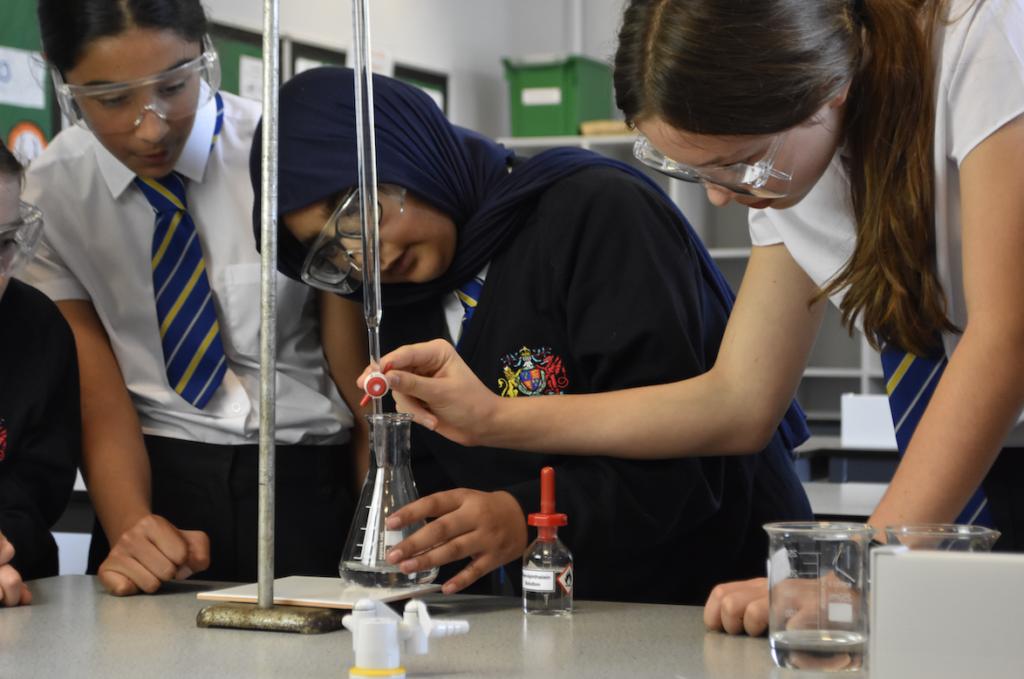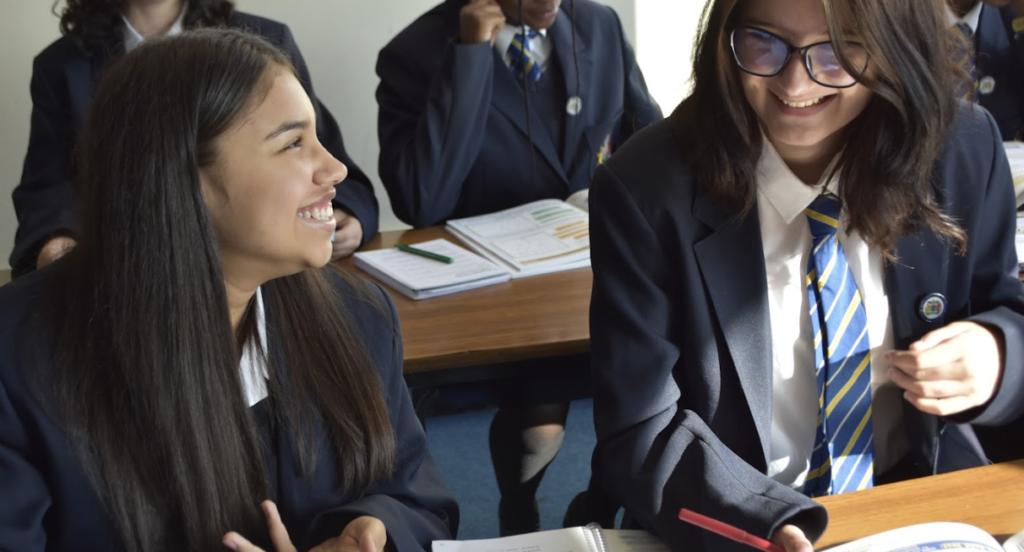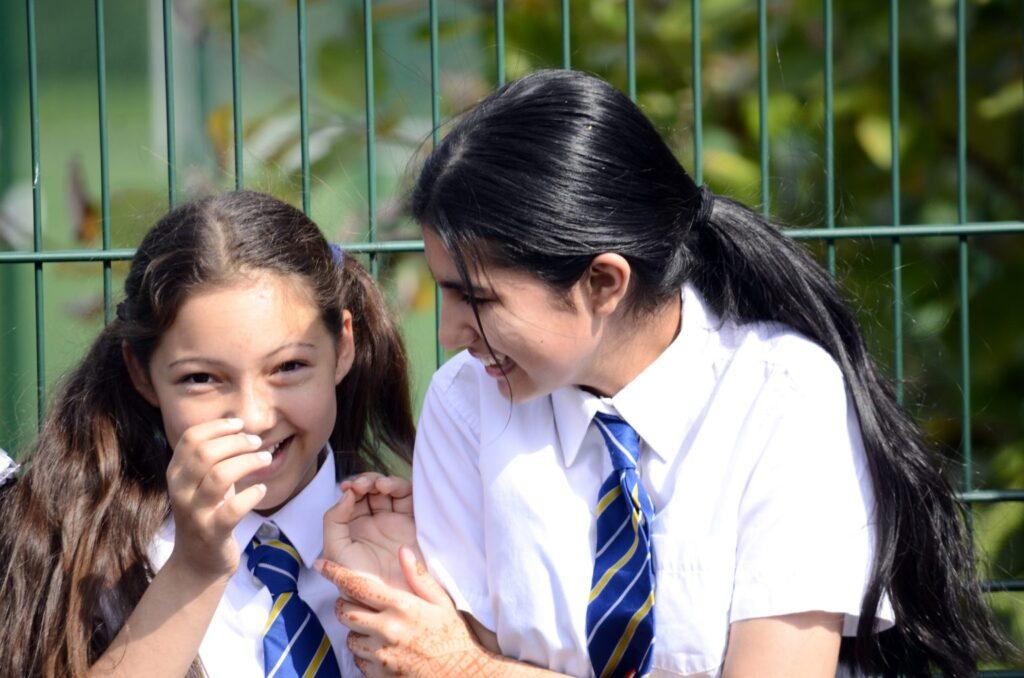At key stage 3, our curriculum has been designed to provide a solid foundation for the skills required at key stage 4.
At KS3, the curriculum initially focuses on phonics and key grammatical structures by introducing students to the concept of gender, word order, adjectival agreement and high frequency verbs. We have specifically chosen topics which are suitable for younger children, namely, family and friends, free time, school and my town. As students progress through key stage 3, there is a greater focus on grammar and sentence structure. We teach these through a variety of topics relevant to the age groups. Subjects covered include media, holidays, food and hobbies and school.
In Year 7 the focus is on language in the present tense, which then progresses to the introduction of the near future tense at the end of the year. In year 8 students interact with a range of tenses – simple past, present and near future. In year 9 students work with a wider range of tenses including present, past – simple and continuous and near future.
As students progress, they are gradually introduced to skills required at GCSE level, for example, translation, decoding, listening for gist and detail and inference.
Year 7
Autumn Term
La rentrée
Back to school
Spring Term
Mon temps libre
Free time
En classe
School
Summer Term
En ville
In town
Year 8
Autumn Term
Là où j’habite
Where I live
Spring Term
Les vacances
holidays
Summer Term
A loisir
Free time and leisure activities
Year 9
Autumn Term
Là où j’habite
Where I live
Spring Term
Les vacances
holidays
Summer Term
A loisir
Free time and leisure activities
Assessment at Key stage 3
In years 7, 8 and 9 students will study a range of topics. Students are assessed at regular points throughout each module with Quick Quizzes. In line with the Scheme of Work, most Quick Quizzes will be driven by the knowledge and application of grammar. Quick Quizzes have also been designed to provide a foundation for the study of MFLs at key stage 4, aiming to upskill students in order to be able to tackle both productive and receptive GCSE style questions in years 10 and 11.
An overview of each module’s Assessment Objectives, (which take the format of “I can statements”) and the relevant “vocabulary chunks” is shared with students at the beginning of each module. These are glued into student exercise books.
Areas for development become clear from both their assessment results and AO overview sheet.
Staff give verbal feedback to students and implement appropriate interventions in subsequent lessons to address misconceptions. Some students may be asked to redo a quick quiz if results were of concern.
How can parents help support their child’s learning?
In order that your daughter makes good progress in her studies it is important that she completes her reflective study after each lesson.
Some ideas to help you best support your daughter include:
Encouraging her to practise dialogues aloud at home.
Encouraging her to learn her vocabulary “chunks” using the Look, Say, Cover, Write, Check technique.
Testing your daughter on spellings and meanings of new words.
Encouraging your daughter to revise new grammar learnt and practise applying it
Encouraging your daughter to download the Quizlet app to increase vocabulary acquisition.
Suggesting that she make full use of the independent learning resources available at Active Learn and Language Nut.
Enrichment opportunities
There are a number of activities that students can take part in. These include attending a French breakfast, a “Language Café” club, a Language and Culture Quiz, a role play competition, talking part in a virtual exchange program working with a partner school in France and attending a French theatre production.
![]()



